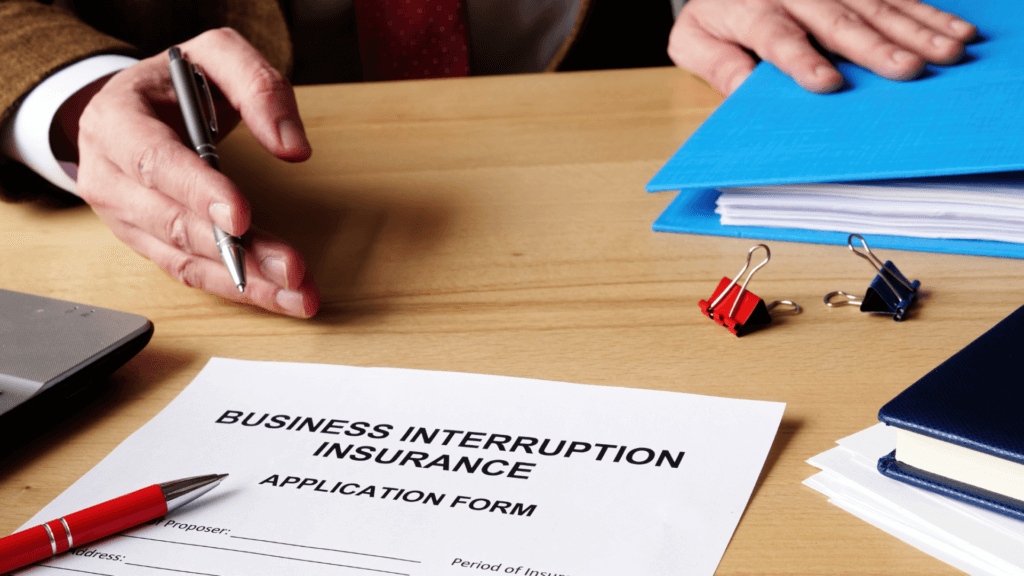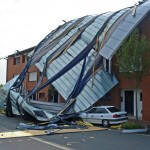
The costs associated with owning and operating a business can stack up over time. When an unforeseen event results in the shutdown of a business or one of its locations, it can create many challenges for commercial property owners – namely, how to keep a company afloat while it is inoperable. When this happens, business interruption insurance can often help recoup some of the losses sustained. Understanding what business interruption insurance is and why commercial property owners need it can be helpful when disaster strikes and they need to file a business interruption insurance claim.
What is Business Interruption Insurance?
According to the Federal Emergency Management Agency (FEMA), roughly 25 percent of businesses fail to reopen after suffering damage due to an unforeseen event or natural disaster. This unfortunate reality is often the result of a business not having the ability to effectively manage its compounding costs, along with the expenses associated with making repairs or replacing property. Because of this, business interruption insurance serves as a safety net to aid business owners when their operations unexpectedly shut down.
Business interruption insurance works by helping to replace a business’s lost income in the event a location has to temporarily close down due to unexpected physical damage from a covered event. In these cases, covered events could include a fire, hail, or other natural disasters, as well as instances of vandalism. However, it is important to note that business interruption policies are not often purchased as stand-alone policies, but as an addition or endorsement to a commercial property policy.
While this coverage can help a business with many of its ongoing expenses and thus help it to stay afloat while a location is inoperable, commercial policyholders need to understand that this coverage does not last indefinitely. Rather, coverage is only in effect for a timeframe known as the period of restoration. The starting point of this period varies, but it usually falls within 72 hours of the loss or damage to the property at issue. This 72-hour waiting period is a common component in many business interruption policies, which makes it clear that coverage will not begin until after a designated timeframe has lapsed.
Most often, the period of restoration ends when the property at issue should be effectively repaired, rebuilt, or replaced with reasonable diligence and similar quality, or when the business resumes its operations at a new, permanent location.
In certain cases, businesses may not have the option to fully reopen or resume operations at the same working capacity they had before the event that triggered coverage. When this happens, an endorsement known as a period of indemnity can extend the period of restoration beyond the timeframe detailed within a business interruption policy. Often, these timeframes are specific and can be up to 30, 60, or 90 days.
Why Commercial Property Owners Need Business Interruption Insurance
For a business to successfully manage certain risks, owners must first purchase insurance to cover the expenses associated with repairing or replacing a building or equipment damaged by a covered event. While this may be a no-brainer for commercial property owners, some may fail to think about how they would keep their business afloat if they were forced to temporarily close.
Because business costs don’t cease during a closure, expenses can quickly add up as income stagnates which makes them incredibly difficult to manage. If not effectively mitigated, these expenses can lead to the permanent closure of the business. This alone makes it incredibly important for commercial property owners to obtain business interruption insurance, as it is used specifically for this purpose.
Because dips in revenue will inevitably hinder businesses from resuming normal operations, business interruption insurance acts as a means to enable the policyholder to recoup significant losses associated with running the business. These losses can include payroll, rent, and other pre-opening expenses accrued to restore revenues to pre-loss levels.
While many different types of businesses can benefit from obtaining business interruption insurance, it is especially crucial for those with permanent brick-and-mortar storefronts. For example, restaurants, retailers, hospitals, and schools often benefit the most from this type of insurance coverage.
Business interruption insurance can also be applied to other business operations that have a direct or indirect correlation to the insured property. Through contingency-based policies like leader property and contingent property coverage, commercial property owners can ensure all potential setbacks the insured property encounters are accounted for.
Contingent Business Interruption
Contingent business interruption insurance coverage works as an extension of business interruption coverage and reimburses lost profits and other extraneous expenses that result from an interruption of related business, such as a supplier. Commercial property owners often want this type of policy extension when the insured relies heavily on vendors, suppliers, or other key businesses to operate effectively. The coverage is thus contingent upon a loss suffered by a different business.
Often, contingent business interruption coverage is used in situations where:
- The insured depends on a single supplier or a few suppliers for materials.
- The insured depends on one or a few manufacturers or suppliers for most of its merchandise.
- The insured depends on one or a few recipient businesses to purchase the bulk of its products.
Leader Property Insurance
Leader properties also fall under the umbrella of contingency-based coverage that can be used as policy extensions for business interruption coverage. Leader property insurance provides coverage for the insured property for the direct physical loss, damage, or destruction to property that is not owned and operated by the insured, but are other businesses located near the insured property that have been proven to attract business to the insured property.
For instance, if the insured business is located near a shopping mall, casino, or amusement park that had to shut down due to a type of physical damage; the leader property insurance would compensate the owner of the insured property for the disruption of business.
Commercial Insurance Claim Attorneys
Having business interruption insurance on hand can be a great help to business owners when the unexpected happens. Despite this, insurance providers can employ various bad faith tactics to undermine the claims process for their benefit. At Raizner Slania, we are familiar with the many ways insurance companies attempt to avoid paying valid claims. If your commercial property has been physically damaged and your insurance provider delays, grossly underpays, or denies your valid business interruption claim, our commercial insurance claim attorneys can help.


